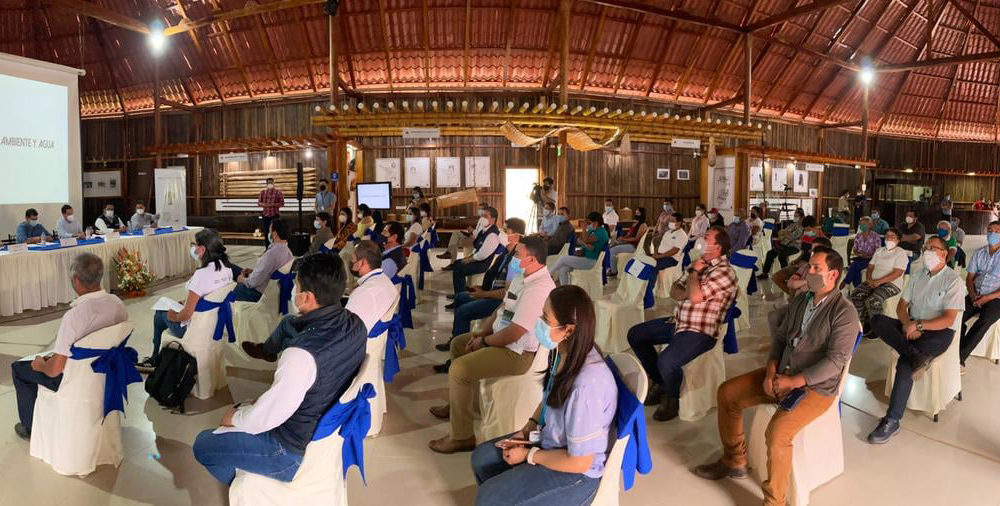Ecuador, thanks to its efforts to implement sustainable production at the national level, has become a pioneer in this cause. Through the Premium & Sustainable strategy, which was launched in 2019 and involves the Ministries of Agriculture and Livestock; Environment and Water; and, Production, Foreign Trade, Investment and Fisheries, the country is making significant efforts to transform the traditional agricultural and agro-industrial production model towards a sustainable model that contributes to mitigating the effects of climate change.
From an integrated perspective, the National Government, represented by the Ministry of Environment and Water and the Ministry of Agriculture and Livestock, through PROAmazonía and with the support of UNDP, has worked on the development of several projects aimed at promoting sustainable, deforestation-free production and forest conservation in the Ecuadorian Amazon. These efforts are aligned with the implementation of REDD+ in the country and its policies focused on reducing deforestation and forest degradation.
The Premium & Sustainable Strategy, through its pillars, promotes sustainable development based on soil conservation, responsible resource management and compliance with environmental and social standards that consider the rights of all stakeholders in the production chain, especially women, young people and indigenous peoples. This strategy also takes into account the international context and the need of international markets to know the origin and treatment of products that are marketed and consumed worldwide.
On January 26, as part of this initiative and the joint efforts led by State Institutions, an agreement was signed between the MAAE, MAG and Agrocalidad to implement a “Deforestation-Free Agricultural Production Certification.” This cooperation will make it possible to articulate the vision of the government portfolios and integrate environmental policy and regulations, as well as their implementation, with the objective of strengthening the productive chain and the sale of products with added value.
Obtaining certification involves several stages, including: the definition of sustainable production terms, the development of technical regulations adapted to the country’s reality, and the incorporation of this model by the productive sector.
The benefits of its application are related to guaranteeing environmental protection, managing natural resources in a sustainable and technical manner, avoiding the expansion of the agricultural frontier and promoting the well-being of producers and communities.
This initiative has generated interest at the national and international level. Thus, through PROAmazonía, agreements have been established with Lavazza and EFI, companies that support the efforts made and have shown their interest in: promoting training programs aimed at local producers, strengthening productivity and, in the future, being part of the marketing strategy abroad with the European Union.
Similarly, and as part of the process for this transition, through PROAmazonía, training and technical support is offered to producers in the coffee, cocoa, palm and livestock production chains. This is done through the Field Schools, which teach good agricultural practices, characterized by being environmentally friendly, thanks to a methodology based on observation and experimentation
Ecuador will continue to join efforts to implement the Premium & Sustainable strategy in the country, to make it a benchmark in sustainable agricultural models, taking into account social, environmental and economic factors. This process involves the entire sector and all stakeholders are expected to join in order to collectively promote sustainable development and, at the same time, responsible models for the management of natural resources.
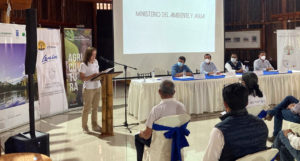
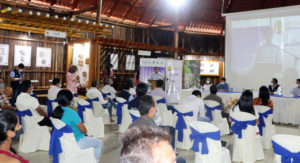
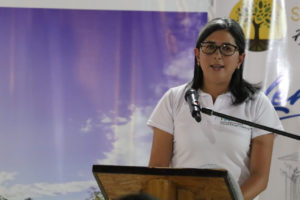
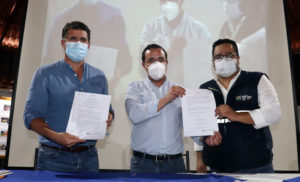
Photographs: José Miguel Gálvez
Description: Event of Subscription of the Inter-institutional Agreement for the Certification of sustainable and deforestation-free agricultural production. Timbara Parish, Zamora Chinchipe (January 26, 2021)
 Español
Español English
English
